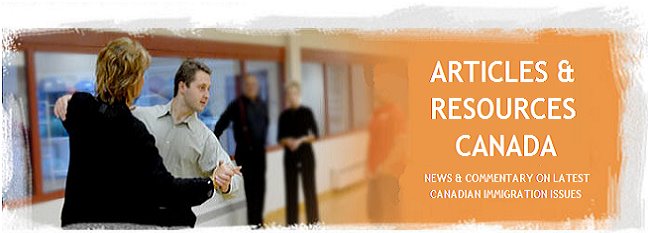An internal government review has revealed that Canada’s soft approach to recruit foreign students and lax monitoring of foreign students and the schools that attract them are the main cause of widespread abuse of current student-visa system.
According to the government's review, the student-visa system is plagued both by bogus students with no intention of studying and by bogus schools that operate as "sophisticated visa mills." The internal review claims that even if overseas students do not attend classes at university, their Canadian visa will not be revoked, whereas some fake schools exist only on paper, without even the pretense of educating students. The review stated both types of fraud are facilitated by shady recruiters and consultants who connect immigrants to schools and often provide forged academic documents.
The internal governmental review of Canada’s student-visa program was commenced by the Department of Citizenship and Immigration Canada (CIC) at least a year earlier based on internal documents from the Canada Border Services Agency (CBSA) on widespread student-visa fraud in British Columbia (B.C.). As of August 2006, there was a backlog of more than 550 student fraud cases in B.C. alone. The CBSA documents also showed that some bogus students who came to B.C. became involved in Asian organized crime, drug trafficking, prostitution and human smuggling. CBSA reports also warned that 2010 Winter Olympics in Vancouver could lead to an increase in student-visa fraud as people in the sex trade recruit young women from overseas to work as prostitutes during the event.
The internal governmental review said that since 2002, Canada has adopted an increasingly "facilitative" approach to foreign students, which no longer requiring students to attend class, making it easier to extend the length of study permits, allowing students to work for up to two to three years after they complete their studies and applying for permanent resident status.
"While these changes have made the program more attractive to genuine students, it also has opened up the opportunity for non-genuine students to use the study permit as a means to secure work in Canada," the review found. "It has also opened up an avenue for individuals who are seeking general entry into Canada for an extended period of time to do so under the guise of being a student."
The review noted because of the problems, Canada's student-visa system "not only poses a threat to the integrity of the student program, it can affect Canada's reputation as a provider of quality education and pose risks to national safety and security."
The review was done in consultation with the provinces, which are responsible for regulating post-secondary schools, and includes several recommendations for how the student-visa system can be reformed.
The number of foreign students living in Canada has more than doubled over the past decade, from 71,000 in 1997 to 157,000 in 2006. B.C. alone had 44,799 foreign students as of 2006, second-highest after Ontario at 58,308.
Overall, 80 per cent of those who apply to Canada for a study permit get one - including 93 per cent of those from Korea and 99 per cent from Taiwan. China and India have lower acceptance rates, but Canada still accepts about three-quarters of applicants from those countries.
Saturday, October 4, 2008
Ottawa promises eyeballing of student visa program after reports of fraud uncovered
Posted by
Salman Hussain
at
7:07 PM
![]()
Labels: canadian immigration, education, foreign students
